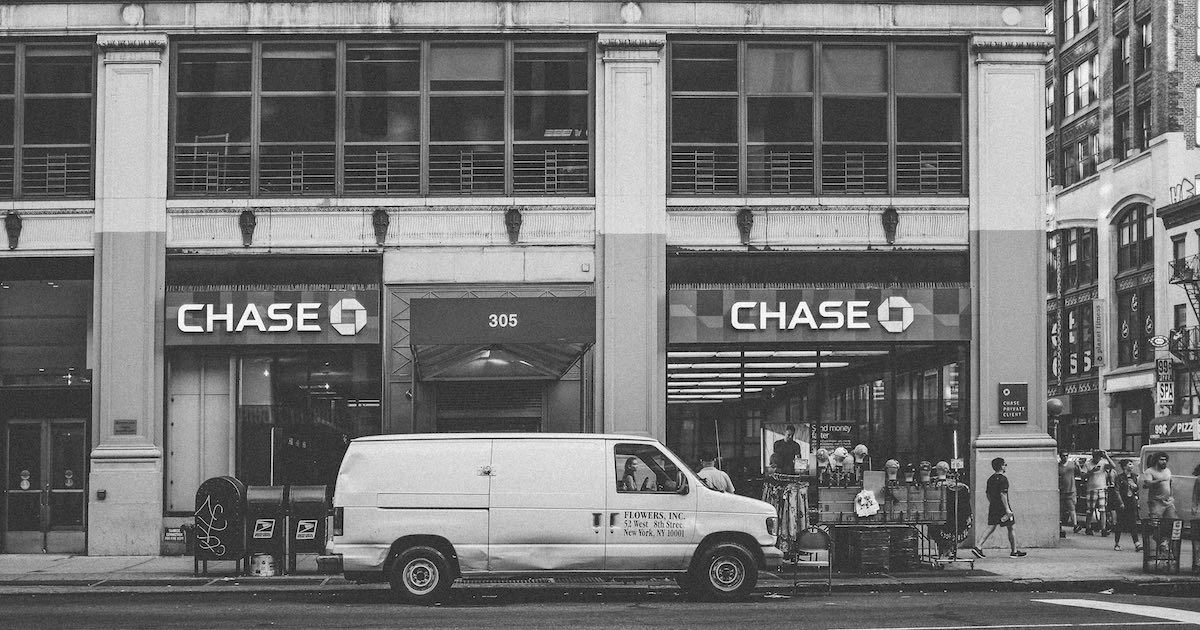
30 Mar 2023 Scott Shepard: As Banks Morph Into Utilities, Too Big To Fail Means Too Big for Bias
Here we are, in another round of de facto bank bailouts. This time investors seem to be (rightly) losing their investments, but depositors are to be covered fully – as long as they bank at “systemically significant” banks. And investors at the too-big-to-fail banks have implicitly been reassured that, whatever the supposed purposes of the post-2008 reforms, they need never worry about their investments.
This ratifies an obvious fact: banks that are offered “systemically significant” protections against failure and loss must not be permitted to discriminate on the basis of their executives’ politics, as so many of them so aggressively do.
After the 2008 banking crisis, FDIC protections against depositor loss were raised to $250,000 per depositor. This was meant to protect savers and small businesses, but not to protect massive businesses, who are fully able to insure against such loss and should under no circumstances find themselves rescued from their own negligence if they don’t.
All that went out the window when the Treasury and the FDIC threw their weight, and our money, behind full bailouts for the depositors in Silicon Valley Bank. Now, depositors at some banks can count on “FDIC-infinity,” on having all of their deposits protected, ultimately by depositors at other banks and by taxpayers, regardless of their lazy or corrupt approach to risk management.
FDIC-infinity isn’t on offer for all depositors nationwide, though. Oklahoma Senator James Lankford asked Treasury Secretary Janet Yellen (Wasn’t she a good, neutral choice for Fed Chair?) whether depositors in local banks would be protected to the height of their deposits. Yellen demurred, noting that banks would only be protected were they large enough to present “systemic risk” if their depositors were not made whole.
And who makes that decision? “A bank only gets that treatment if a majority of the FDIC board, a supermajority of the Fed board and I, in consultation with the president, determine that the failure to protect uninsured depositors would create systemic risk and significant economic and financial consequences,” Yellen explained.
Great. No partisan politics there.
The results of such a rule were always blindingly obvious. Now they’re playing out. Big depositors are leaving smaller banks for the ones that will surely be counted as creating systemic risk if any deposits remain uninsured. As of this writing, the price of credit-default swaps at regional banks such as Lincoln Financial and Capital One are soaring.
So deposits at some banks are insured – by those banking at other institutions and ultimately by all taxpayers – while deposits at other banks are not. And since any of the too-big-to-fail banks going under and taking their investors’ assets with them would certainly create “systemic risk and significant economic and financial consequences,” those investors are protected – ultimately by all taxpayers – as well.
So much for ending too big to fail.
The corollary to all of this is that the top of the American banking system has been turned into, in effect, a massive public utility – protected by taxpayers against loss because the government can’t – or won’t – let them go under.
Public utilities, though, are treated as common carriers. They are not permitted to act in partisan ways or to turn away customers whose politics they don’t care for.
Contrast the behavior of the too-big-to-fail banks. Bank of America’s CEO doesn’t even pretend at objectivity in running that bank anymore. Rather, he has repeatedly announced that he’s running his bank according to what “society” and “the world” wants. Lo and behold, what the world wants are his personal policy preferences, like decarbonization for people who aren’t him, equity-based discrimination against men and white and straight people who aren’t him or his family, and the disarming of people who aren’t him or his bodyguards, among many other hard-left goals. And he, who is in effect the president of a public utility but who gets paid as though he’s a mogul and gets to act as though he’s a czar, has the temerity to call his audacity capitalism.
Similarly, while JP Morgan’s Jamie Dimon talks a good game, his bank is in practice just as woke and dishonest as Bank of America. Just in the last weeks new developments have emerged in Chase’s debanking of the National Committee for Religious Freedom, headed by former Senator, Governor and Ambassador Sam Brownback. While Chase executives have been telling reporters that it had fully explained the debanking incident to the former customer, it turns out that Chase has come up with four different lies about why the organization was debanked. In the course of these lies it demanded that the group – apparently uniquely among Chase customers – provide the names of donors and its criteria for picking beneficiaries. It then for a while lied about having demanded this information. It also blamed regulations for the debanking, along the way lying about the content and applicability of those regulations.
The too-big-to-fail banks are backstopped by all taxpayers – their executives’ salaries, their depositors’ assets, their investors’ capital, the whole thing. This being the case, they must be forbidden from any sort of discrimination against any legal clients, against any legal industries, and on any other nonobjective grounds. And they must be required to show their work fully, as it were, any time any possibility of partisan behavior arises.
America’s large banks are now effectively public utilities. It’s time for them to be treated – and their executives paid – that way.




